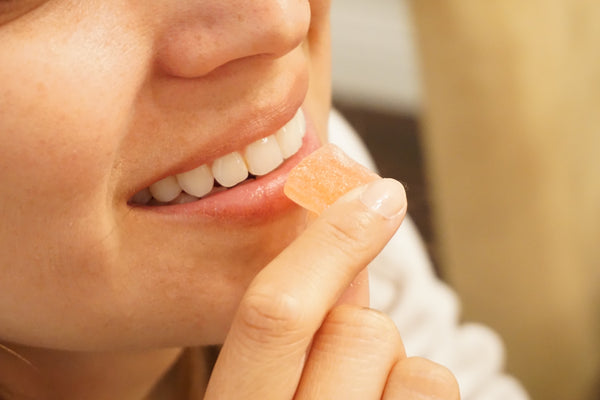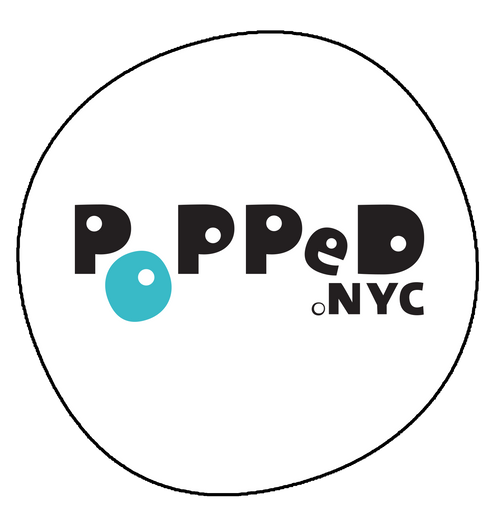Because cannabis and THC can be addictive, it’s not surprising that you’re wondering if it’s also possible to develop an addiction to CBD.
With the growing popularity of CBD products, we don’t blame you for asking.
We’ll explore why CBD isn’t addictive like other substances and debunk nine other common misconceptions with facts, fun, science, and — we’ll admit it — a little bit of sass.
Is CBD Addictive or Habit Forming?
Are you questioning your daily CBD routine or trying to decide if it’s something you want to try because you’re worried about addiction?
First, let’s be clear about what addiction is: The inability to give up a substance despite it having negative effects on your well-being.
So, is CBD addictive? While it acts on the endocannabinoid system and is often derived from the cannabis plant, it doesn’t have the same addictive properties as alcohol, cannabis, tobacco, opioids, etc.
Believe it or not, various studies have found that CBD may help people overcome substance abuse and addiction.

Is It OK to Consume CBD Every Day?
Yes, yes, yes — as long as you understand your body and CBD dosing. While we don’t believe there’s a “right or wrong” way to use CBD, our bodies respond to consistency, like good nutrition, daily exercise, etc.
So, not only is it OK to take CBD every day, it’s more beneficial than only using it once in a while.
That statement is especially true if you take CBD for chronic issues — like pain, anxiety, and insomnia.
Bonus: Our bodies don’t develop tolerance to CBD like with other substances, meaning you can use it daily without having to increase your doses over time.
Does CBD Have Withdrawal Symptoms?
Unlike similar cannabinoids that contain THC, most people tolerate CBD very well, and the possibility of dependence or physical addiction is almost non-existent.
We mentioned above that CBD can help people with withdrawal symptoms of other substances. If that’s not enough proof for you, check this out: A recent study concluded that there is no evidence of withdrawal symptoms in people who abruptly discontinue using CBD.
Who Should Avoid Taking CBD?
CBD can have some mild side effects (sleepiness, headaches, etc.) and combining it with other medications with similar side effects can increase the risk of experiencing them.
In addition, CBD can cause something called “altered concentration,” meaning it interferes with some medications by competing for the enzymes that break them down in the liver.
Luckily, Penn State researchers compiled a list of medications that CBD may interact with — note: some medications on this list may not be affected by CBD but by other cannabinoids, like THC.
How Much CBD Should a Beginner Start With?
It depends. We know that’s super helpful, right? The best advice we can give to CBD beginners is to start slow.
Slow, as in 5-10 mg to start. Then, you can try upping your dose by 5 mg every two or three days. We also recommend trying CBD before bedtime; drowsiness is the most common side effect, so a nighttime dose won’t compromise your productivity if you find it makes you sleepy.
A “typical” dose is anywhere between 10 mg and 40 mg daily.
Not sure how to begin your CBD journey? Send us a message, give us a call, or pop into our shop anytime — we’re here to help.
Will CBD Get Me High?
CBD is psychoactive, but it is not psychotropic. Great, what does that mean? A psychotropic is any substance that alters your state of mind and inhibits your cognitive function — i.e., getting you high.
This misconception is likely the most common one that confuses newcomers in the CBD world, so we’ll state it clearly for all to see: No, CBD does not get you high.
Does CBD Really Have Health Benefits?
Ah, another misconception about CBD: Does it have quantifiable benefits? We say yes. Our customers say yes. And science says yes — so, yes.
- CBD can help reduce symptoms of Generalized Social Anxiety Disorder.
- CBD can improve your sleep quality and decrease disturbances during sleep.
- CBD can have antidepressant effects, acting faster than conventional antidepressants.
- CBD can also be effective for several mood disorders and mental health conditions.
- CBD can relieve symptoms of cancer treatment, including pain and nausea.
- CBD can have healthy effects on your heart, like lowering blood pressure naturally.
We could do this all day, but we have other CBD myths to tackle.
Is CBD Legal?
Yes, hemp-based CBD is legal at the federal level. However, some states have conditions about the CBD products you can sell, buy, and consume.
Some states legalized CBD in all forms, regardless of its THC content. Others restrict the amount of THC that the products can contain — typically under 0.3%. And some states only allow the use of CBD if it contains zero THC.
Luckily for you, our CBD products contain 0% THC, so you don’t need to worry.
Extra credit question: Did you know that CBD comes from various plants, not just cannabis? It’s true.

Are CBD and Hemp Oil the Same?
No, it’s not. While we often extract CBD from parts of the hemp plant, hemp oil comes from seeds, which contain little to no CBD.
But that doesn’t mean hemp oil doesn’t have its place. However, most use it for its skin health benefits rather than the positive effects of CBD we discussed earlier.
Hemp oil offers unique benefits, including reducing inflammation, treating acne, and relieving symptoms of various skin conditions.
Related: When Should You Take CBD?
Are All CBD Products the Same?
All CBD products aren’t created equal — and neither are CBD vendors.
So, here’s what we recommend: Do your research. We have a passion for all things CBD, and we let our products speak for themselves.
Before buying any CBD products, read customer reviews, check out the third-party lab test results to ensure quality, and look for a brand that resonates with you and your lifestyle.
You need it, we got it — Pop over to our shop and find your new favorite CBD products.

